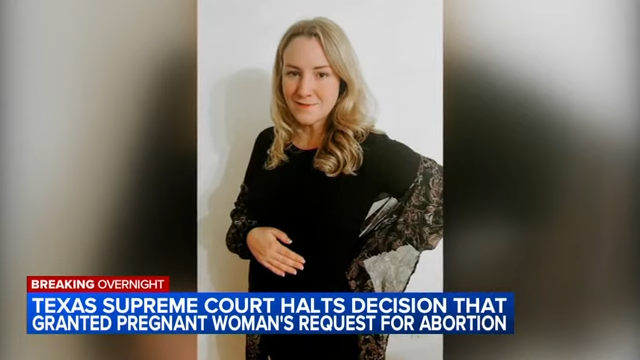
Fight over abortion continues in Texas
Texas has been a battleground over abortion for years and the shooting hasn’t stopped since the US Supreme Court overturned Roe v Wade in Dobbs v Jackson Women’s Health Organization last year.
In the latest development, a mother of two from Dallas, Kate Cox, sought an abortion at 20 weeks because tests revealed that her unborn baby had Trisomy-18. Children with this chromosomal disorder are normally very disabled; half die at birth and nine out of ten within their first year of life.
Although Texas law is broadly anti-abortion, it permits abortions after 20 weeks if the mother’s health in seriously endangered.
With the help of the Center for Reproductive Rights, Cox’s doctor applied for permission under Texas law to perform an abortion. Travis County District Judge Maya Guerra Gamble agreed on December 7, but the Texas Supreme Court blocked her ruling.
The Supreme Court ruled that: “No one disputes that Ms. Cox’s pregnancy has been extremely complicated. Any parents would be devastated to learn of their unborn child’s trisomy 18 diagnosis. Some difficulties in pregnancy, however, even serious ones, do not pose the heightened risks to the mother the exception encompasses.”
Ms Cox departed for another state to have the abortion.
According to the New York Times, her case highlights the draconian rigour of the Texas law:
… confusion and fear among doctors have succeeded in preventing nearly all abortions, even in cases of serious pregnancy complications, and there is little incentive to change course. Texas has publicly reported only 34 abortions so far this year, down from more than 50,000 in 2020, before the first of the severe restrictions went into effect.
Abortion advocates complain that doctors who are willing to perform abortions do not know what constitutes a valid reason for a medical exemption.
But doctors have said that the risk of performing an abortion that they believed to be necessary but that could later be questioned by the state presented them with a stark choice: Go ahead with the procedure and risk felony prosecution, or wait until a woman’s health deteriorates to the point that no one would question the medical need.
Abortion opponents, however, pointed out that this case was confusing two issues: the risk to the mother’s health and the illness of the unborn child. Only the former is grounds for an exemption.
“A fetal diagnosis of Trisomy 18, in and of itself, is not a threat to the mother’s life,” American Association of Pro-Life Obstetricians and Gynecologists (AAPLOG) told CatholicVote. “With properly informed consent and a healthcare team that’s committed to honoring the dignity and value of both mom and baby, mothers can receive quality care in Texas, and their babies can be given a chance at life.”
